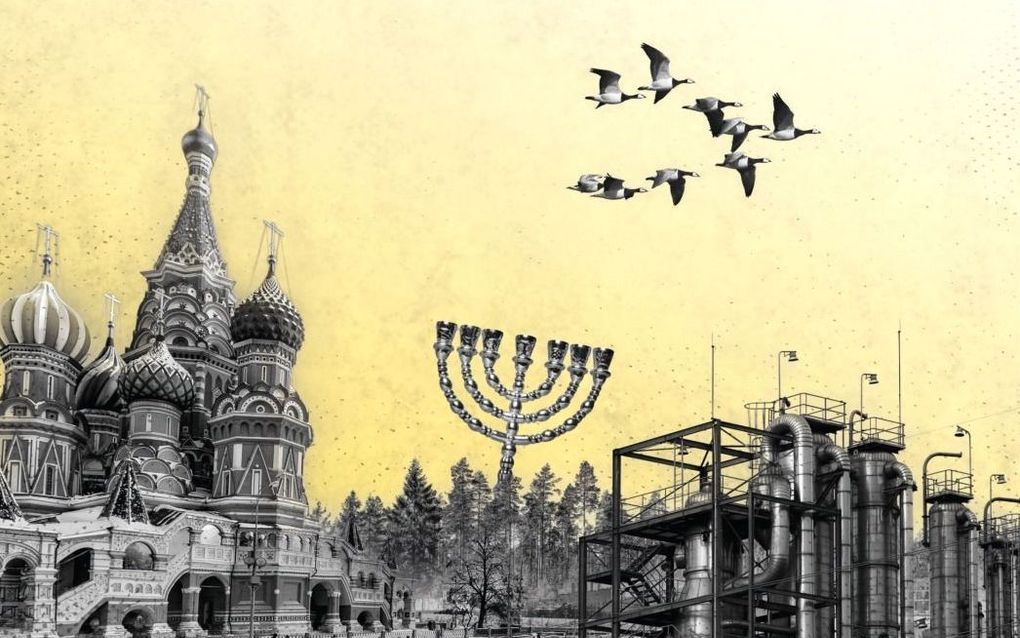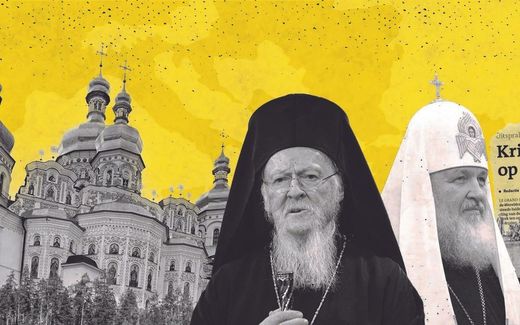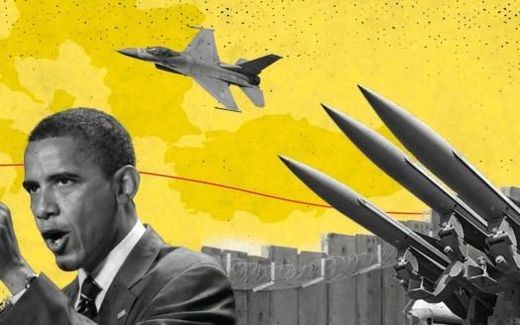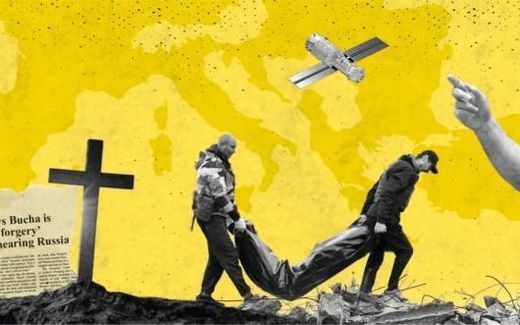Democracy as the best of all bad options (part 6/6)
18-04-2022
Opinion
Jakob Hoekman, RD

Illustration RD, Corné van der Horst
Opinion
What is the similarity between the President of Russia and the kings and presidents of the Middle East? The answer: that they have turned out to be real autocrats. Rulers who are firmly in control. They don’t offer political freedom but do give a certain social stability.
This has been the case for decades in countries like Saudi Arabia and the United Arab Emirates. What is new is that Russia under Putin is increasingly coming to resemble these countries. Today's Russia has a form of government where political freedom is a mirage, but where there is a certain stability. It is not surprising that in these times of war, more and more rich Russians are finding their way to cities like Dubai.
As the days of the tsars and of the dictator Stalin become more and more glorified in Russia, the question arises: is democracy really the end of all contradictions?
Historically, the answer is simple: certainly not. First of all, because democracy is such an elastic concept. The idea of democracy may be ancient, it does not mean that our democracy is even remotely similar to the first democratic form of government that took shape in Athens from the 6th century BC. There, only a few rich men were allowed to vote.
The greatest empires in history have always had very little interest in democracy. The Roman Empire was indeed once a republic with a few democratic features, but from 31 BC under Emperor August (the same one who spread fake news about his enemies) it became an absolute monarchy. The people had no say. The same applies to the Assyrian Empire, the Umayyad Empire and the Ottoman Empire, to run through history with seven league boots.
Yet, in our Western societies, democracy has become the shibboleth of political orthodoxy. We judge others on their political purity on the basis of their democratic views. There is an international organisation, V-Dem, that makes this as measurable as possible through questions. Can everyone vote? What about civil liberties? Can everyone participate in state administration? Are decisions about the well-being of citizens at stake? And does everyone benefit equally?
V-Dem's latest report, from March 2022, shows that all is not well with global democracy. For ten years, dictators and autocrats have been gaining ground. Russia is among the 20 per cent of countries worldwide that score lowest on democratic parameters – along with, indeed, all the Gulf States where the Russians are now going. (At the very top, by the way, are the Scandinavian countries, unchanged, with the Netherlands in 13th place).
Exporting democracy
One of the countries where a tendency towards autocracy is visible is the United States. This has something tragicomic about it, because it was precisely the US that wanted to export democracy to the Middle East (without much success).
But also in the Netherlands, discussions about democracy are never far away. For example, there have been discussions for years about whether democracy as a form of government should be anchored in the Constitution. Some people find this surprising: hasn't it been written in there for a long time that the Netherlands is a democracy? The answer is no. You could infer it, but it is not there.
Now there has to be a "general provision", a kind of preface, which must include that the Constitution "guarantees fundamental rights and democratic rule of law". On 5 April, this was voted on for the second time in the Lower House, and the proposal achieved the required two-thirds majority. The FvD, PVV and the Reformed SGP voted against it.
The latter vote in particular is interesting, because the SGP has always had a love-hate relationship with democracy. This is certainly true if you interpret democracy as the people’s sovereignty, which can easily degenerate into a tyranny of whatever the majority happens to want.
Former SGP MP J. T. van den Berg said in 2005 that he could still propagate theocratic ideas, precisely because there was no such addition to the Constitution in which the people’s sovereignty was taken as the guiding principle.
Shortly before that, the Reformed pastor, Rev. J. Lohuis in Scherpenisse, had said something much sharper: "It is my deepest conviction that democracy is an invention of the devil", he argued from the pulpit. That statement provoked a national storm of criticism. But with his view, Lohuis is not so far removed from what has been a common opinion among Christian believers for centuries: it is dangerous and unchristian to give the people the last word. And this is not only a common thought in Protestant Christian orthodoxy, but also among orthodox Muslims. Many Salafists unreservedly reject democracy, arguing that sharia should be the norm instead.
Democracy as radical ideology
Meanwhile, others, such as Dutch conservative thinker Dr Bart-Jan Spruyt and director Jan Schippers of the SGP’s scientific institute, tirelessly point out that democracy and Christianity are not mutually exclusive at all. At least, as long as democracy does not become a radical ideology. In any case, freedom and the rule of law are better served within a democratic system than under a dictator.
Christian critics and defenders of democracy may find common ground in a famous statement by the British war chief Churchill: "No one claims that democracy is perfect. It has even been said that democracy is the worst form of state, except for all those other forms that have been tried from time to time."
Democracy as the best of all bad options: it is at least relatable. There is only zero chance that Putin or the Arab autocrats will let this stop them from trying those "other forms" anyway. Whether you applaud it or reject it, growing autocracies are here to stay in our world.
This article was translated by CNE.news. It was published previously in Reformatorisch Dagblad on April 16th, 2022.
Related Articles






